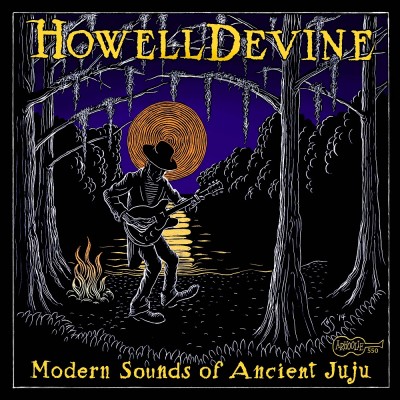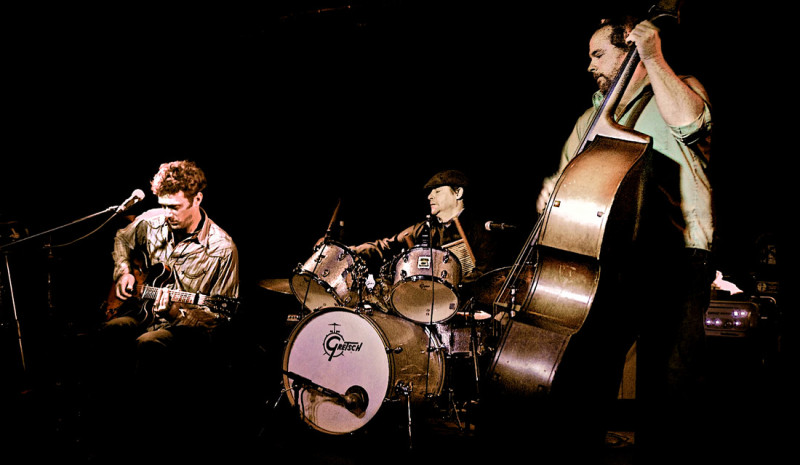The Bay Area blues scene has thrived ever since World War II brought an influx of African Americans to the region. Two decades later, Bill Graham started presenting blues artists on the same bill as rock bands, introducing the electrified Chicago sound to new audiences. But an older tradition was already in place, an acoustic sound that provides the primary inspiration for the blues band HowellDevine. The trio’s new album "Modern Sounds of Ancient Juju" harkens back to the blues’ Delta roots.
While the band’s name might seem too perfect, HowellDevine came by their moniker, and their irresistibly rootsy Delta sound, honestly. With Joshua Howell on slide guitar, harmonica, and urgent yet laid back vocals, and the loose but lockstep rhythm section of bassist Joe Kyle Jr. and Pete Devine on stripped-down drum kit and occasional washboard, the band boasts an open, uncluttered sound that taps into the blues’ roots without sounding like mimicry.

Many white musicians have contributed to this essentially African-American cultural expression, and what makes HowellDevine’s music so engaging is the way they combine their command of the acoustic idiom with an awareness of the entire blues continuum. The effect can by revealingly uncanny, like when they tear into Bukka White’s “Shake ‘Em On Down” and it sounds like a lost, unplugged side from Jimi Hendrix circa 1967.
Since the release last year of their debut album Jumps, Boogies &
Wobbles, HowellDevine has become one of the busiest blues combos on the Bay Area scene. It was the first blues album in almost three decades released by Arhoolie Records, the storied East Bay roots label whose founder, Chris Strachwitz, is the subject of the fantastic new documentary "This Ain't No Mouse Music."
